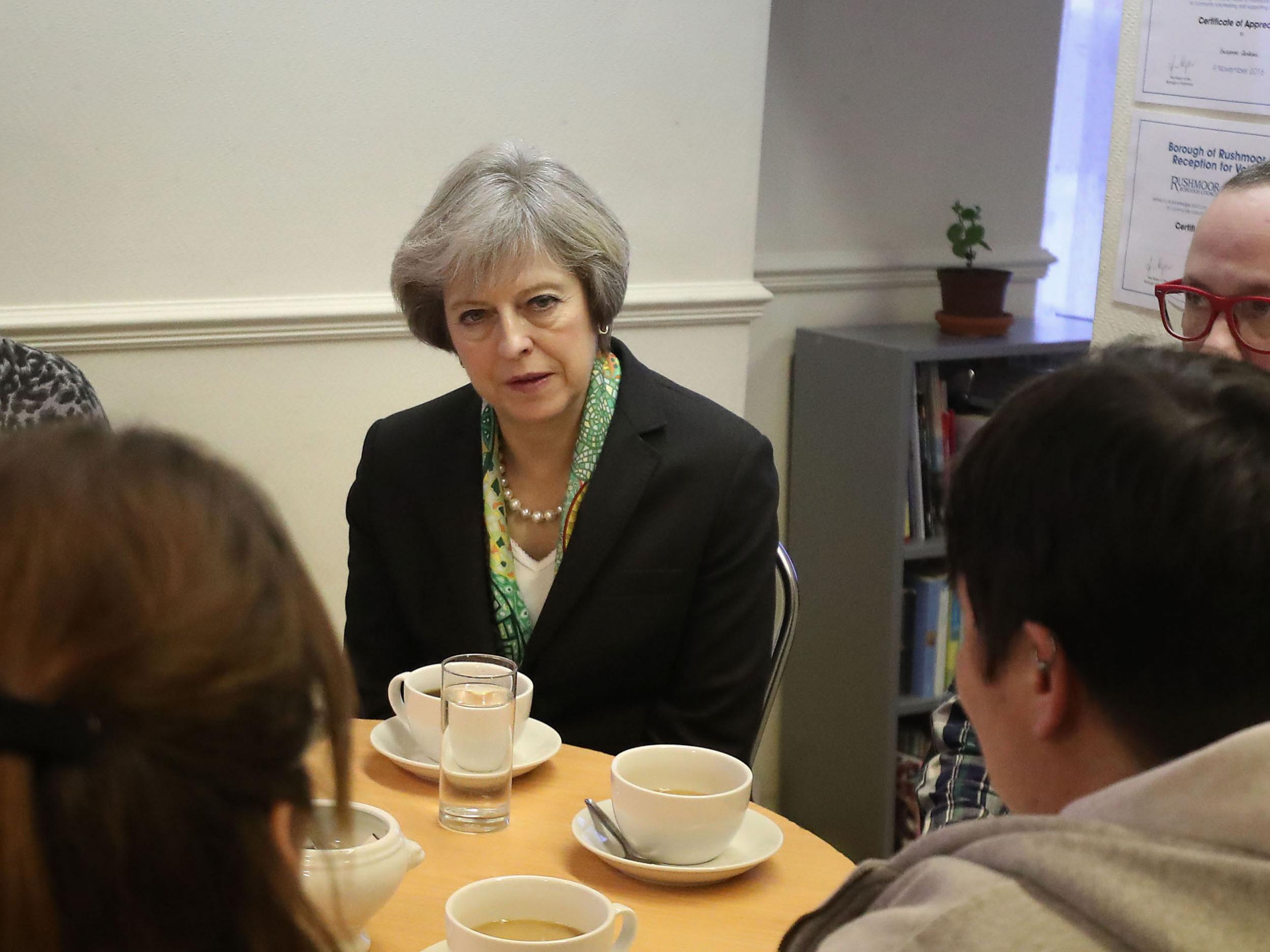Theresa May urged to take ‘tangible action’ on mental health as unexpected deaths rise 50% in three years
Ending stigma is ‘an important goal, but it’s not going to solve our nation’s mental health crisis,’ says Luciana Berger, head of Labour’s mental health campaign

Your support helps us to tell the story
From reproductive rights to climate change to Big Tech, The Independent is on the ground when the story is developing. Whether it's investigating the financials of Elon Musk's pro-Trump PAC or producing our latest documentary, 'The A Word', which shines a light on the American women fighting for reproductive rights, we know how important it is to parse out the facts from the messaging.
At such a critical moment in US history, we need reporters on the ground. Your donation allows us to keep sending journalists to speak to both sides of the story.
The Independent is trusted by Americans across the entire political spectrum. And unlike many other quality news outlets, we choose not to lock Americans out of our reporting and analysis with paywalls. We believe quality journalism should be available to everyone, paid for by those who can afford it.
Your support makes all the difference.Theresa May must match her promise to end the stigma around mental health problems with “tangible action”, the head of Labour’s mental health campaign has said.
Calls for the Government to honour its pledges came as it emerged the number of unexpected patient deaths reported by mental health trusts in England has risen by 50 per cent in three years.
Luciana Berger called the figures, obtained by the BBC through Freedom of Information requests, “tragic and unacceptable”.
“We have a mental health crisis in our country and we need tangible action from the government, at the very least to deliver on the promises they’ve made thus far,” she told The Independent.
“We’ve seen a measurable reduction around the stigma, taboo around mental health. That is an important goal, but it’s not going to solve our nation’s mental health crisis.”
There were 3,160 deaths by suicide, neglect and misadventure reported by trusts in 2015-16, up from 2,067 in 2012-13, according to the BBC’s Panorama programme.
More than half of England’s mental health trusts provided the data to the broadcaster, which also revealed funding to the trusts has been cut by £150m over the past four years.
The Department of Health attributed the increase in unexpected mental health deaths to improvements in the way they are reported.
“This increase in the number of deaths is to be expected because the NHS is very deliberately improving the way such events are recorded and investigated following past failings – from April all NHS Trusts will be required to publish both numbers of avoidable deaths and how they are improving care,” said a department spokesperson.
But in response to this, Ms Berger said: “I don’t think you can account for a 50 per cent increase by way of a change in reporting”, citing the high number of deaths reported by Norfolk and Suffolk Foundation Trust, which campaigners have attributed to budget cuts.
“There needs to be a shift in how we look after people to how we keep people well; to how we prevent mental ill health,” she said.
“All the focus, attention and resource goes into what we do when individuals are in a crisis. That doesn’t help them, it’s incredibly expensive, and it’s one of the reasons I believe we’re seeing people taking their own lives.”
The Prime Minister has pledged new initiatives for schools and employers to provide mental health support, as well as plans for new alternatives to hospital treatment.
But barely any extra funding was promised to improve mental health services, with an extra £15m, around £23,000 per parliamentary constituency, dedicated to creating “places of safety”.
Marjorie Wallace, chief executive of mental health charity Sane, said a lack of hospital beds and pressures facing community mental health teams may have led to an increase in unexpected mental health deaths.
“The Government has claimed it is spending more money on mental health than ever before, but according to professionals, little of this is reaching the frontline as it is not ring-fenced and instead seeps into other areas of the general health budget,” she said.
“We also believe that while mentally ill people are turned away from A&E, have to be sectioned for treatment, or shunted around the country like unwanted parcels in order to find an available bed, the number of unexplained deaths will continue to rise.”
According to think tank the Health Foundation, funding to mental health trusts has fallen despite a rise in national health spending of £8m, reported the BBC, although these figures were also disputed by the Department of Health.
"We also dispute the funding figures used in this programme – just this year, mental health spending by CCGs has gone up by £342m, which is on top of an extra £1.4bn allocated in this Parliament,” they said.
Liberal Democrat MP Norman Lamb, who served as care minister in the last coalition government, said hundreds of millions of pounds earmarked for children’s mental health care but spent on plugging gaps left by cuts amounted to “theft”.
“Much of the additional £1.4bn of funding secured for child mental health care is being diverted to prop up other services. This amounts to theft of money intended to improve the lives of vulnerable young people,” he said following Ms May’s speech.
“Sadly, mental health is often the first area which loses out when budgets are tight. Unless the government addresses the funding crisis facing the NHS and ensures extra investment gets through to where it's needed, we will not see the improvements in mental health care that are so badly needed.”
NHS England said since 2004 the rate of suicide among people in mental health services had fallen by more than 30 per cent.
Join our commenting forum
Join thought-provoking conversations, follow other Independent readers and see their replies
Comments